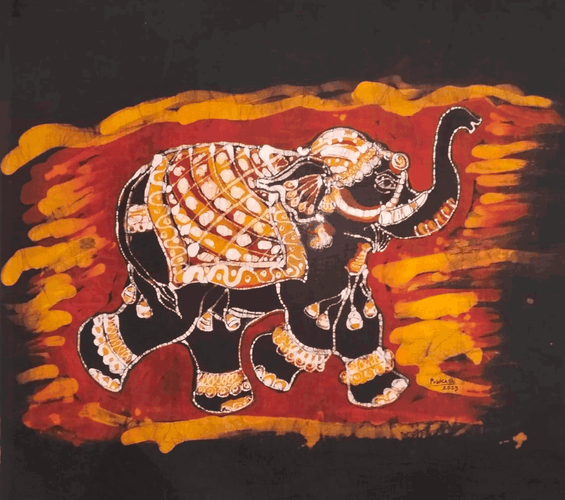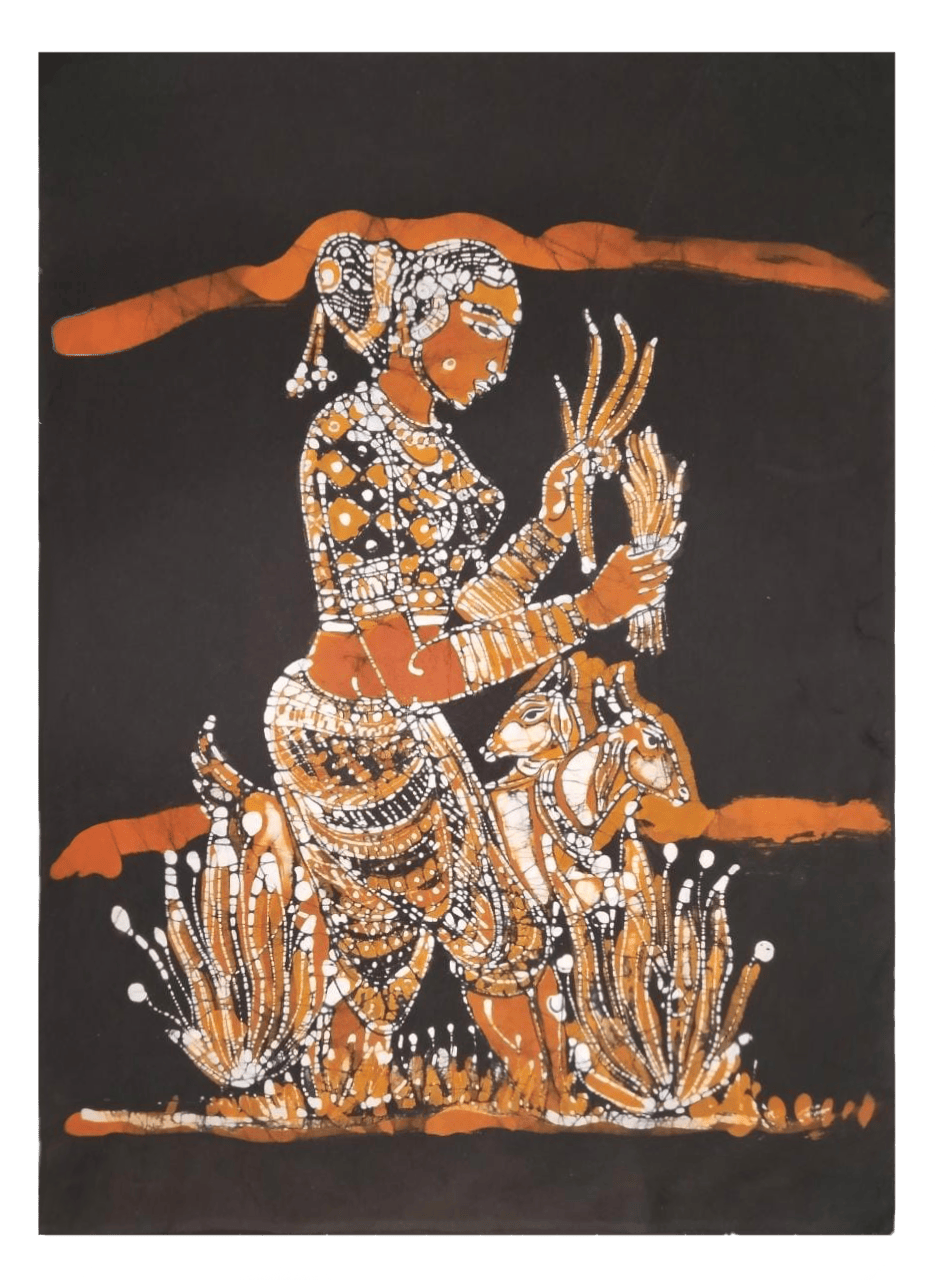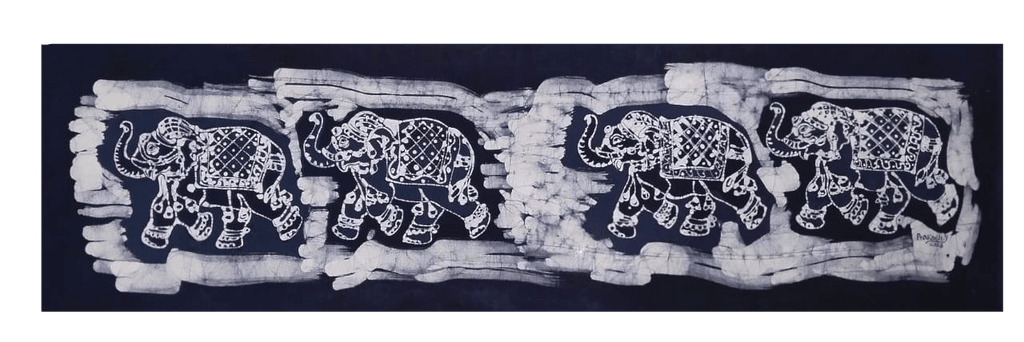

About Batik Art
Indian Batik is a captivating and ancient textile craft renowned for its intricate patterns and vibrant colors. Originating in Java, Indonesia, this art form was embraced by Indian artisans who adapted it to local traditions and aesthetics. Batik involves a unique technique of wax-resist dyeing applied to fabric, creating stunning, often abstract patterns and designs that highlight the skill and creativity of the artisans. In India, Batik is celebrated for its rich cultural heritage and its role in showcasing traditional craftsmanship through contemporary fashion and home decor.
Indian Batik art often explores themes related to nature, mythology, and daily life. Common motifs include floral patterns, geometric designs, and depictions of animals, which are inspired by the rich flora and fauna of India. Additionally, themes from Hindu mythology, such as scenes from ancient epics or divine figures, are frequently depicted. These themes are not only visually appealing but also carry symbolic meanings that connect the artwork to cultural and spiritual narratives.
History
The history of Batik in India traces back to the early 20th century when the craft was introduced by Indonesian traders and missionaries. Over time, it was adopted and adapted by Indian artisans, particularly in states like Gujarat, Rajasthan, and Madhya Pradesh. The Indian version of Batik evolved to reflect local motifs, techniques, and cultural elements, merging the ancient art form with Indian traditions. This adaptation not only preserved the craft but also enriched it with regional influences, making Indian Batik a unique blend of traditional and indigenous artistry.
Material and Method
Indian Batik is typically created on cotton or silk fabrics, which provide a suitable canvas for the wax-resist dyeing process. The method involves applying hot wax to the fabric in specific areas to resist dye. The fabric is then dipped in dye baths, with the waxed areas remaining uncolored. Once the dyeing process is complete, the wax is removed, revealing intricate patterns and designs. The process is labor-intensive, requiring careful application of wax and dye to achieve the desired results. The final product is a beautifully patterned textile that showcases the skill and artistry of the Batik craftsmen.
Significance
Indian Batik holds significant cultural and artistic value, representing a harmonious blend of historical influence and regional creativity. It plays an essential role in preserving traditional textile arts while adapting to contemporary trends. Batik textiles are used in a variety of applications, from clothing and accessories to home furnishings, making them a versatile and cherished craft. Beyond its aesthetic appeal, Indian Batik symbolizes the continuity of cultural traditions and the ingenuity of Indian artisans, contributing to the rich tapestry of India’s artisanal heritage.
FAQs
How does purchasing Indian Batik support artisans?
When you purchase Indian Batik, you directly support the artisans who create these beautiful textiles. Your purchase helps sustain their craft, supports their livelihoods, and promotes the preservation of traditional textile arts.
Where can I learn more about Indian Batik?
For more information about Indian Batik, you can explore our blog section, which provides detailed articles on the history, techniques, and cultural significance of Batik. Additionally, you may find workshops and resources through art institutions and craft organizations.
Highlights of Batik Art Artform
| Artform | Batik Art |
|---|---|
| Origin | Telangana, West Bengal |
| Materials Used | Cotton Cloth, Silk |
| Colours Used | Red, Yellow, Orange, Black, White, Multicoloured, Brown |
| Popular Themes | Hindu, Ganesha, Elephant, Village, Dance, Spiritual, Woman, Man, Bull |
| Price Range | ₹5,600 to ₹9,000 |
| Artists | Kartik Manna |
| Making Process | Handmade |
























